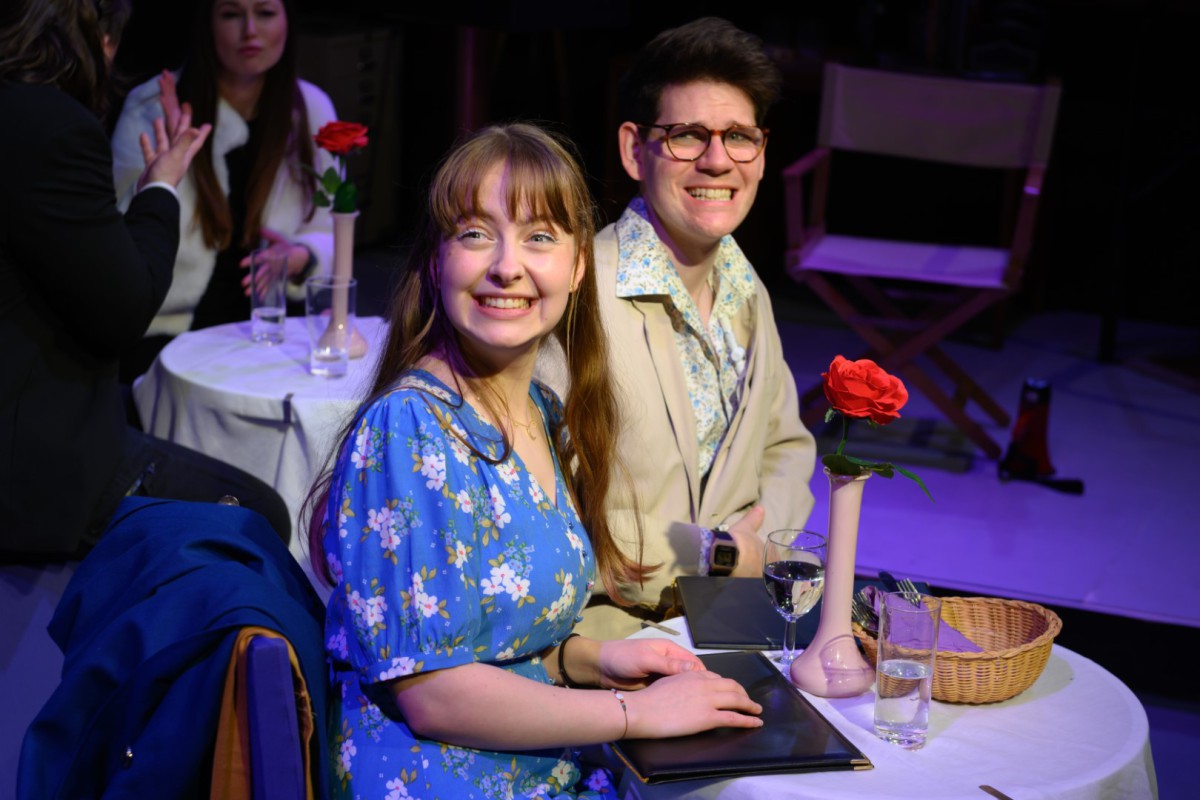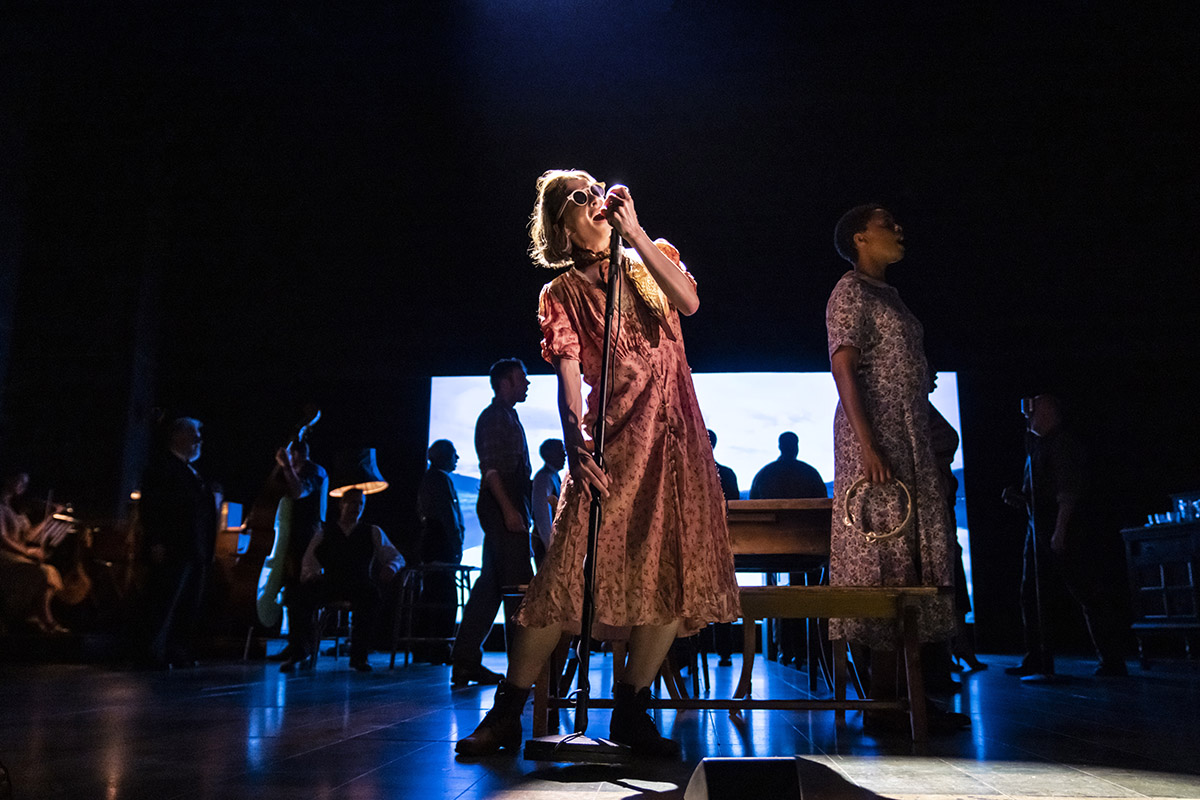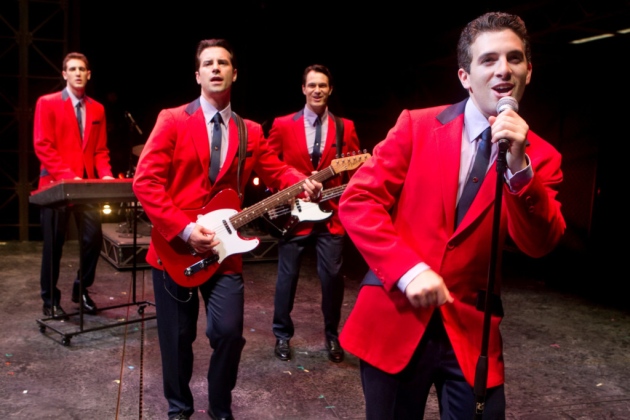The secret of good comedy is apparently timing – but it appears slightly out of joint in this curiously retro futuristic satire.
First performed in 1998 and set in 2073, Alan Ayckbourn’s script envisages a future where jobbing soap actors are replaced by androids, partly generating their own lines from plot outlines fed by jaded writers and overseen by even more jaded directors and technicians.
Just as Star Trek makes weirdly casual references to 20th century culture, this scenario is stumbled upon by aspiring writer Adam who is oddly obsessed with Buster Keaton and Laurel and Hardy and who dreams of making a two-hour one off TV comedy. I suppose someone might do.
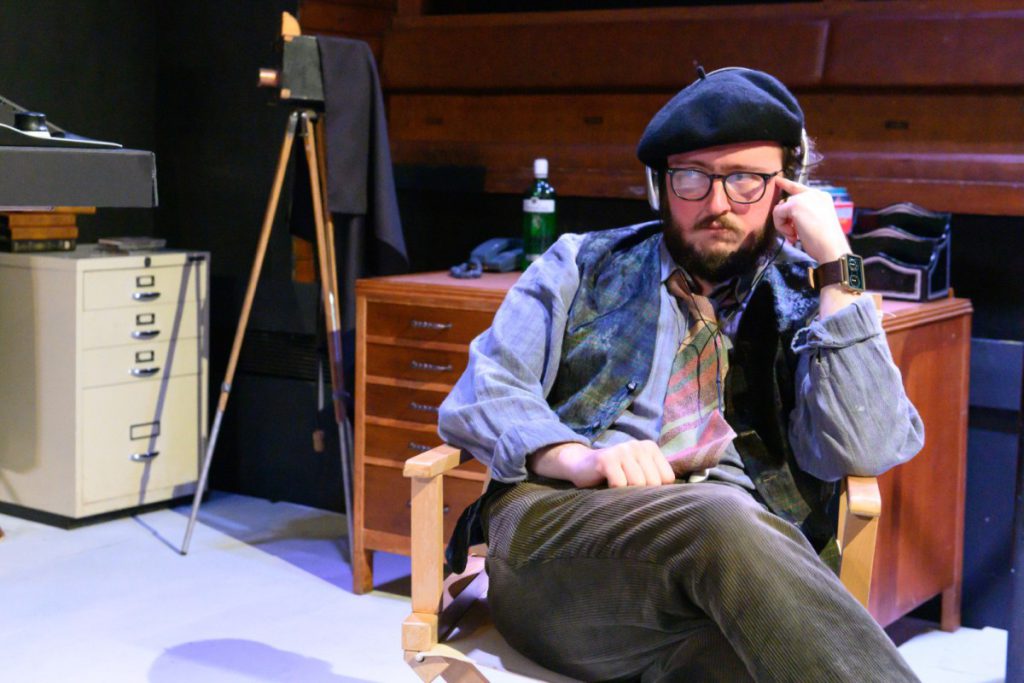
When one of the ‘actoids’ unexpectedly breaks character and appears to have some spark all of her own, our naïve writer begins to fall for her and – within 24 hours – writes, rehearses, and pitches a star vehicle for his mechanical beau.
The over-long first half is mostly taken up with this exposition, a refresher on cinema history, and some easy satire on media executives who are ratings driven and self-obsessed. I can only imagine Ayckbourn or some of his friends had trouble getting commissioned.
Despite the best efforts of Harry Quick as the world-weary director Chandler Tate, and Shem Jacobs and a particularly outrageously, enjoyably over the top Amy Beven as the other (frequently malfunctioning) actoids, it struggles to get traction.
Thankfully that changes in the second half, when Hannah Wood as the amazing actoid Jacie Triplethree is really allowed to let rip. Jacie has been trained on dozens of TV bit parts and they come flooding out in inappropriate situations, or she simply lacks the context to know how to behave – captivated by a hotel reception bell or madly hopping around a clothes shop in a dress carrier, Wood is a delight to watch in these manic episodes.
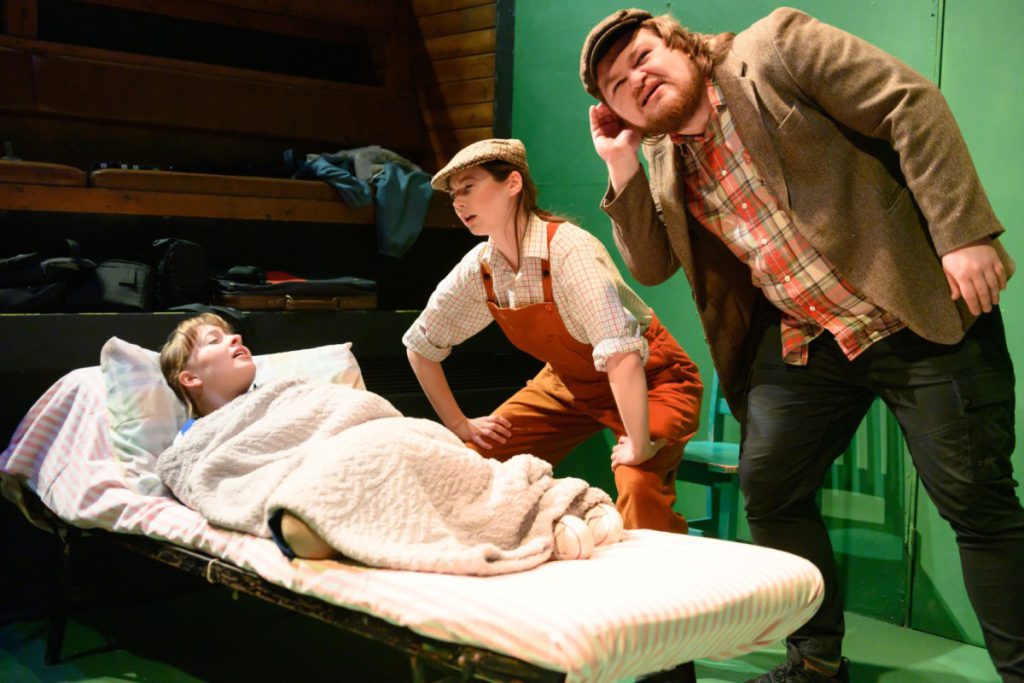
With Lewis Garvey as her straight-man and mentor, and further supporting performances by Beven and Jacob, Wood is the beating (android) heart of the piece, with especially strong delivery of a machine-gun selection of cliches on love.
We can’t really blame Ayckbourn for his crystal-ball gazing being off the mark – screen actors will be replaced by CGI not androids, local TV in Britain hasn’t done drama for years let alone been able to afford £1m+ artificial actors, and AI will murder us all before we ever fall in love with it. But we can hold him up for the play’s confused musings on the nature of humanity, and plotting that makes next to no sense.
The middle section is glorious though, thanks to Wood and her supporting cast. Good actors really do make all the difference, even if they’re playing robots.
- Comic Potential continues at Sewell Barn Theatre in Norwich until January 27 2024.
